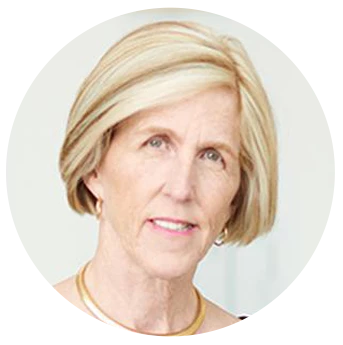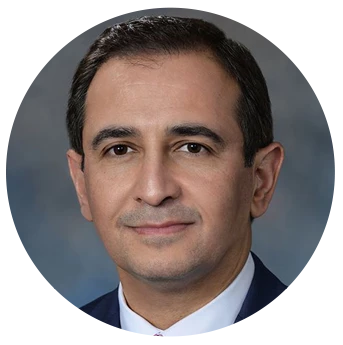
Joint meeting with Fatty Liver Disease and Multi-System Complications
Hepatobiliary Cancers: Pathobiology and Translational Advances
March 22-24, 2021 | 10:00AM EDT | 2:00PM UTC | 3:00PM CET*
*Program is in development and subject to change
Attention
The live portion of this conference has concluded and all presentations are now available for purchase on demand. Registrants to the live event may access this content anytime for up to 9 months following the event.
Free Access to On Demand Content to Scientists from Low-and Middle-Income Countries
Keystone Symposia welcomes the global scientific community and aims to connect researchers within and across disciplines to accelerate the advancement of biomedical and life sciences. This form may be used for scientists from low- and middle-income countries of all career stages to determine eligibility and request free access to scientific content presented during recent eSymposia events. If eligible, you will be sent an access code for the On Demand content of the eSymposia event(s) of interest.
Hepatobiliary cancers, including hepatocellular carcinomas (HCC) and intrahepatic cholangiocarcinomas (iCCA), represent a major global health burden that continues to challenge biological researchers and clinicians alike. Hepatobiliary cancers are the second or third leading cause of cancer mortality worldwide, with over 840,000 new cases diagnosed in 2018. This Keystone Symposia meeting will be the first of its kind to focus specifically on this challenging disease. The meeting aims to integrate emerging basic and translational research with the clinical perspective, in order to advance our understanding of the pathobiology behind both HCC and iCCA, with the ultimate goal of guiding novel treatment and prevention strategies targeting these underlying mechanisms.
The program will explore current challenges in the field, including (1) shifting etiological trends, focusing on mechanisms linked to cell injury, inflammation, and fibrogenesis; (2) roles of the microbiome and tumor microenvironment in affecting disease progression, therapeutic resistance, and immunosurveillance; (3) challenges of inter-and intra-tumoral heterogeneity; (4) identification of novel and more effective biomarker signatures for monitoring prognosis and treatments; (5) advances in “omics” for personalizing therapies; and (6) current and emerging trends in molecular and immune targeting. Moreover, this unique meeting is paired with a joint meeting on fatty liver disease, which is a perfect fit in lieu of the fact that non-alcoholic steatohepatitis is an important risk factor for hepatobiliary cancer. These joint meetings will foster new and productive research collaborations towards both basic and translational advances, as well as offer valuable training opportunities for basic researchers and clinician scientists.
Pricing:
Regular Registration Rate: $275 USD
Student Registration Rate: $150 USD
Deadlines:
Abstract Submission:
‣ For Short Talk Consideration: Passed
‣ For Poster Booth: Passed
ePoster / SciTalk Submission: Passed
Financial Aid Application: Passed
*Abstract submission is required in order to submit an ePoster and/or Scitalk
#VKSHepatoCancer21
Keynote Speakers

Helen H. Hobbs
University of Texas Southwestern Medical Center

Hashem B. El-Serag
Baylor College of Medicine
Speaking at this eSymposia
Silvia Affo
Columbia University, USA
Jesper Bøje Andersen
University of Copenhagen, Denmark
Renumathy Dhanasekaran
Stanford University, USA
Hashem B. El-Serag
Baylor College of Medicine, USA
Gregory J. Gores
Mayo Clinic, USA
Tim F. Greten
NCI, National Institutes of Health, USA
Daniel A. Heller
Memorial Sloan Kettering Cancer Center, USA
Helen H. Hobbs
University of Texas Southwestern Medical Center, USA
Jay D. Horton
University of Texas Southwestern Medical Center, USA
Yujin Hoshida
UT Southwestern Medical Center, USA
R. Kate Kelley
University of California, San Francisco, USA
Josep Llovet
Icahn School of Medicine at Mount Sinai, USA
Amaia Lujambio
Icahn School of Medicine at Mount Sinai, USA
Lopa Mishra
George Washington University, USA
Irene Oi Lin Ng
University of Hong Kong, Hong Kong
Maria Rescigno
Humanitas University, Italy
Bruno Sangro
Clinica Universidad de Navarra, Spain
Robert F. Schwabe
Columbia University, USA
Alphonse E. Sirica
Virginia Commonwealth University, USA
Bin Tean Teh
Duke-NUS Medical School, Singapore
Augusto Villanueva Rodriguez
Icahn School of Medicine at Mount Sinai, USA
Xin Wei Wang
NCI, National Institutes of Health, USA
Jessica Zucman-Rossi
University Paris Descartes-HEGP, France
This new virtual meeting format came out of difficult circumstances, but your commitment to scientific progress is what inspired us to launch Keystone eSymposia. In these virtual meetings, we are capturing the same innovative essence of our in-person meetings that you've all created as a scientific community. Here, Debbie Johnson, our CEO, explains how we're going to do that.
The views expressed in this eSymposia are those of the participants and not necessarily of the participants’ organizations or of Keystone Symposia.
Donate to Keystone Symposia










